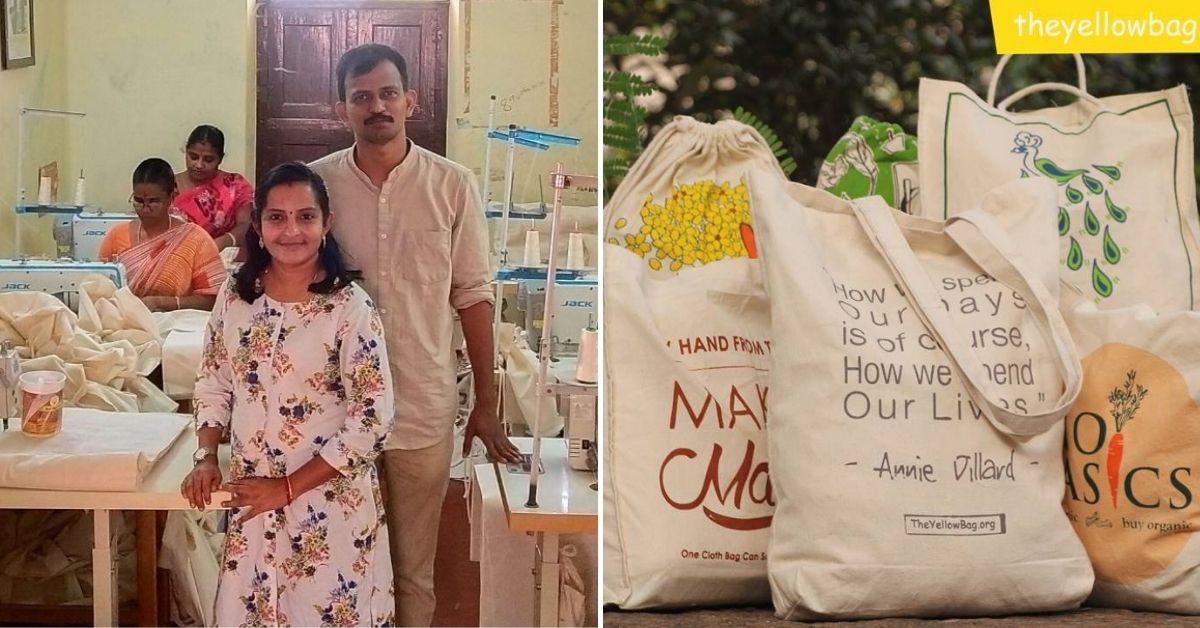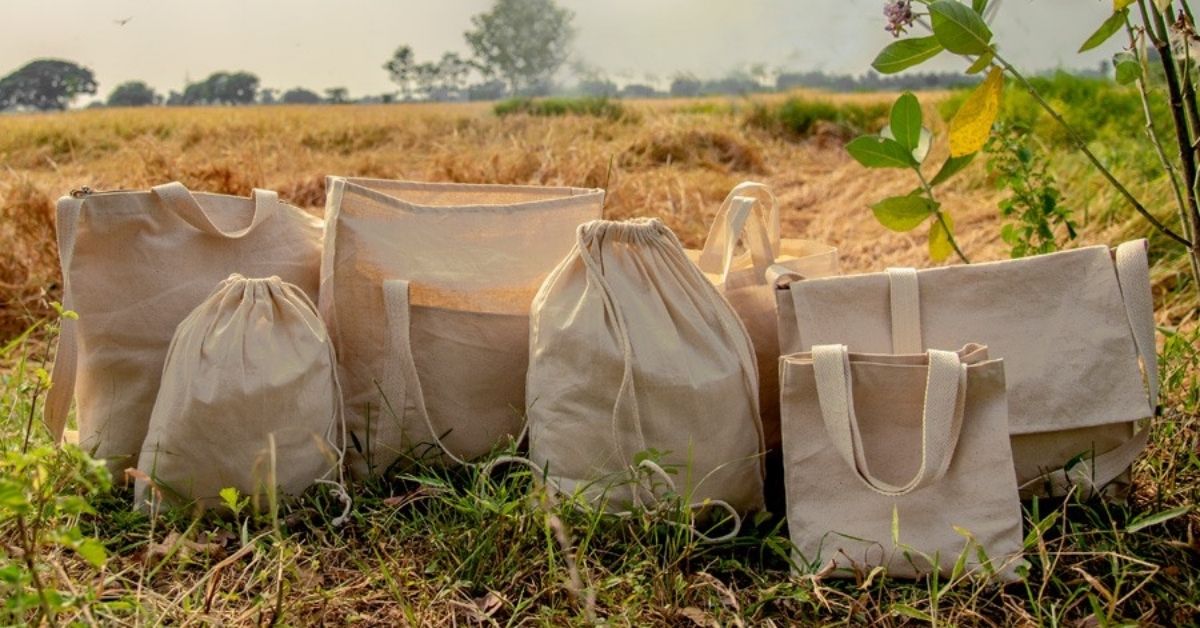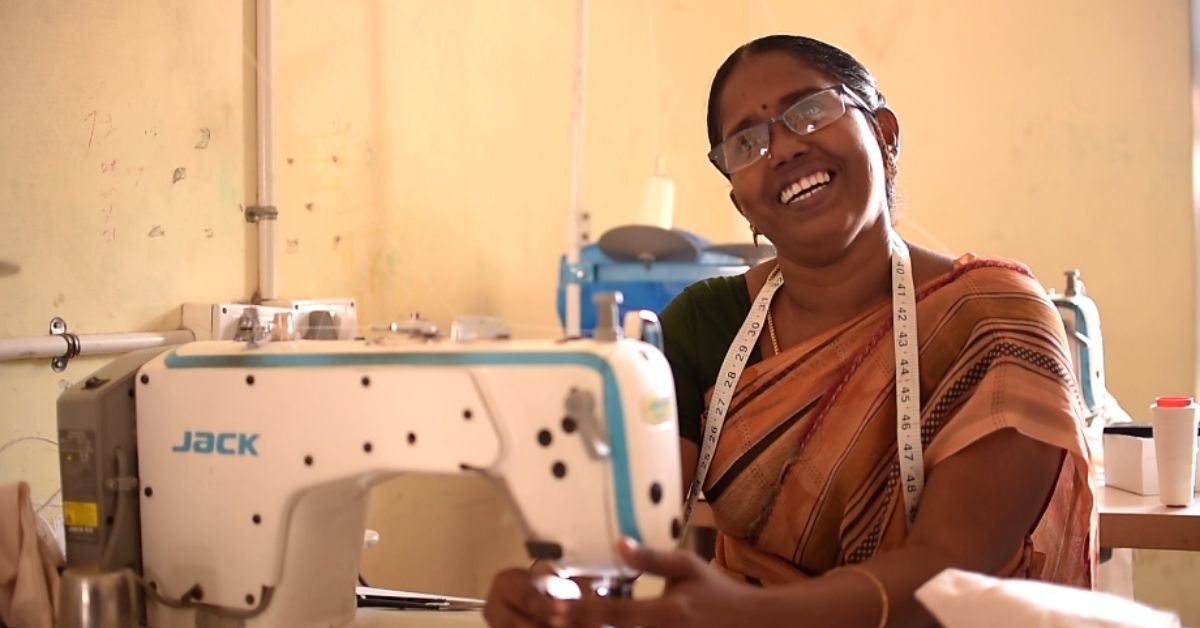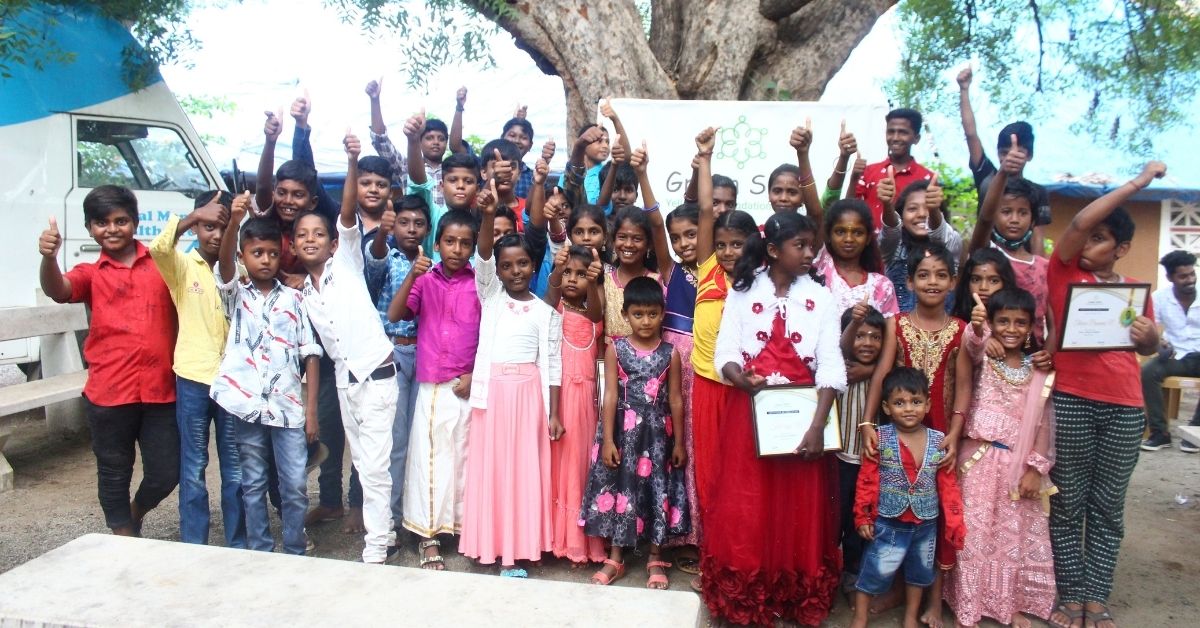Couple Quit Jobs To Sell Traditional Eco-Friendly Bags, Earn Turnover of Rs 3 Crore
Krishnan Subramanian and Gowri Gopinath quit their jobs to return to Madurai and start YellowBag, an eco-friendly venture that sells the traditional Manjapai, or yellow bags, to encourage people to switch to cloth bags.

While hustling in their corporate jobs in Bengaluru and Chennai, Gowri Gopinath and Krishnan Subramanian had always longed to return to their hometown, Madurai, and embrace a minimalist lifestyle.
This dream of returning to their roots finally started taking shape in 2014, with their initiative of promoting eco-friendly cloth bags as an alternative to single-use plastics.
“When we looked around, we felt that there is this huge consumption culture that is highly dependent on plastics, especially single-use. We were part of it. We reflected on this thought and realised the need for switching from plastics to something that’s eco-friendly and sustainable,” Krishnan tells The Better India.
The couple started small, by first creating awareness among their friends and family to switch to cloth bags. “But when they asked us where they could get these bags from, we had no answer. That’s how we decided to start small-scale production of cloth bags with the help of a few local tailors,” he explains.
As they began receiving more order requests and realising the need for ramping up production, they started an enterprise — YellowBag — in 2014.
Eight years on, the initiative has turned into a full-fledged social enterprise based out of Madurai. The venture produces cloth bags while empowering hundreds of marginalised women through sustainable employment.
After quitting their jobs for good in 2015, the couple moved back to their hometown to expand their enterprise and eventually establish an NGO — YellowBag Foundation — in 2019.
Embracing culture, the sustainable way

The name YellowBag has been inspired by Manjappai (which means a yellow coloured cloth bag), which has always been an integral part of Tamil culture. Krishnan says he has many memories associated with the bags while growing up in Madurai, where carrying them around was commonplace. “Manjappai was used for everything, from giving wedding gifts to buying groceries. It holds a great significance in every household in Tamil Nadu,” says the 39-year-old.
In a bid to revive this tradition, YellowBag offers a range of eco-friendly and sustainable bags that serve different purposes. “We only use eco-friendly materials, which are mostly cotton. We also offer products based on clients’ requirements, like jute,” she says.
While the cause was noble, starting the enterprise was not that easy. “It was difficult to convince consumers about the need to replace single-use plastic bags with cloth bags. It was also difficult to convince the tailors, who were comfortable making non-woven bags out of synthetic fabrics, as it was convenient to stitch,” says Gowri, adding that it took them around two to four years to find a place in the market and build up the organisation to what it is today.
Currently, YellowBag offers packaging bags, garment protector bags, totes, and drawstring bags. “Our products start from Rs 20 and go up to Rs 200. They are mostly made based on clients’ requirements. We mainly market our products through our website or through several social media platforms. We also sell our products at our own office,” adds Gowri.
“Our customers include several fashion brands such as Unique Threads, Alankrit, Thenmozhi Designs and more, within and even outside India. Also, there is a good demand for cloth bags for events, exhibitions and marriages. So, we make the bags according to their requirements and customise them by digitally printing their name or logo,” elaborates Krishnan, who also exports his products to different countries, including the US, UK, and Austria.
The organisation, which was self-funded by the couple, had a turnover of around Rs 3 crore before COVID. “The pandemic time was really challenging, and it has affected our sales in the past two years. But now things are getting better and we are hoping to reach Rs 3 crore by next year,” he says.
Building livelihood, empowering women

While starting the business enterprise, they had a small team of tailors and didn’t have a centre of their own, resulting in issues related to quality and timely delivery. Krishnan says, “So, we decided to create opportunities for women, especially those living in slum areas like Mathichiyam and Meenambalpuram.”
Thus in 2016, they set up their first hub in the Mathichiyam slum, which is one of the most crowded urban slums in Madurai. “The women there had no income opportunities and were highly dependent on their husband’s inconsistent income,” he explains.
The women also didn’t want to go far from where they were staying, adds Krishnan. “So we set up the hub right at the centre of the slum, making it convenient for the women to work closer to their homes. We give them free skill training and capacity building and also provide them with a regular income.”
Panchavarnam, who has been working with YellowBag for the past five years, says that the organisation has been providing her a stable income. “I have been working here as an all-rounder. I never thought I would ever find such a comfortable job, that too very close to my house. Now I am able to provide food for my family and education for my children,” says the 36-year-old, who also lives with certain physical disabilities.
Just before the pandemic broke out, Krishnan notes that the organisation had over 250 women working under them. “Currently we have around 40 women working for us,” he points out. “The hub is where the pre-production like cutting, the printing of the fabric, etc. mainly happens. Later, it sends the work to several women micro-entrepreneurs outside who do the rest of the work.”
“It was difficult to find enough orders as there were no events or exhibitions. So we made a thin line of survival by making cloth masks during the pandemic outbreak. As things are opening up again, the number of women has increased to 40, and hopefully, we will be back to 250 soon,” says Krishnan.
Project Green Slate

Apart from providing employment opportunities to the women, the couple also started an initiative to help the children of these women, who would visit the hub after their school. “We observed that they needed some attention, especially in developing certain essential life skills,” says Krishnan.
In 2019, they started an initiative Project Green Slate, which is a tuition centre for children. “Later, we started a 40-week long-life skills training programme which works on building skills and confidence of children in classes 6 to 8. It focused on non-academics skill development and the programme was designed by us based on eight different multiple intelligence areas, as proposed by Howard Gardner (American Psychologist),” he explains.
In the same year, they registered The YellowBag Foundation as an NGO in order to find funding and grants for the education programme.
“We started with just 40 students, but now there are around 150 children in this programme from the community itself. There are two people who help in teaching the children. Since the number of children has now increased, the classes are conducted in collaboration with other NGOs who already have established centres in different areas,” he adds.
For more information, you can visit their website or Facebook page.
(Edited by Divya Sethu)
If you found our stories insightful, informative, or even just enjoyable, we invite you to consider making a voluntary payment to support the work we do at The Better India. Your contribution helps us continue producing quality content that educates, inspires, and drives positive change.
Choose one of the payment options below for your contribution-
By paying for the stories you value, you directly contribute to sustaining our efforts focused on making a difference in the world. Together, let’s ensure that impactful stories continue to be told and shared, enriching lives and communities alike.
Thank you for your support. Here are some frequently asked questions you might find helpful to know why you are contributing?


This story made me
-
97
-
121
-
89
-
167











